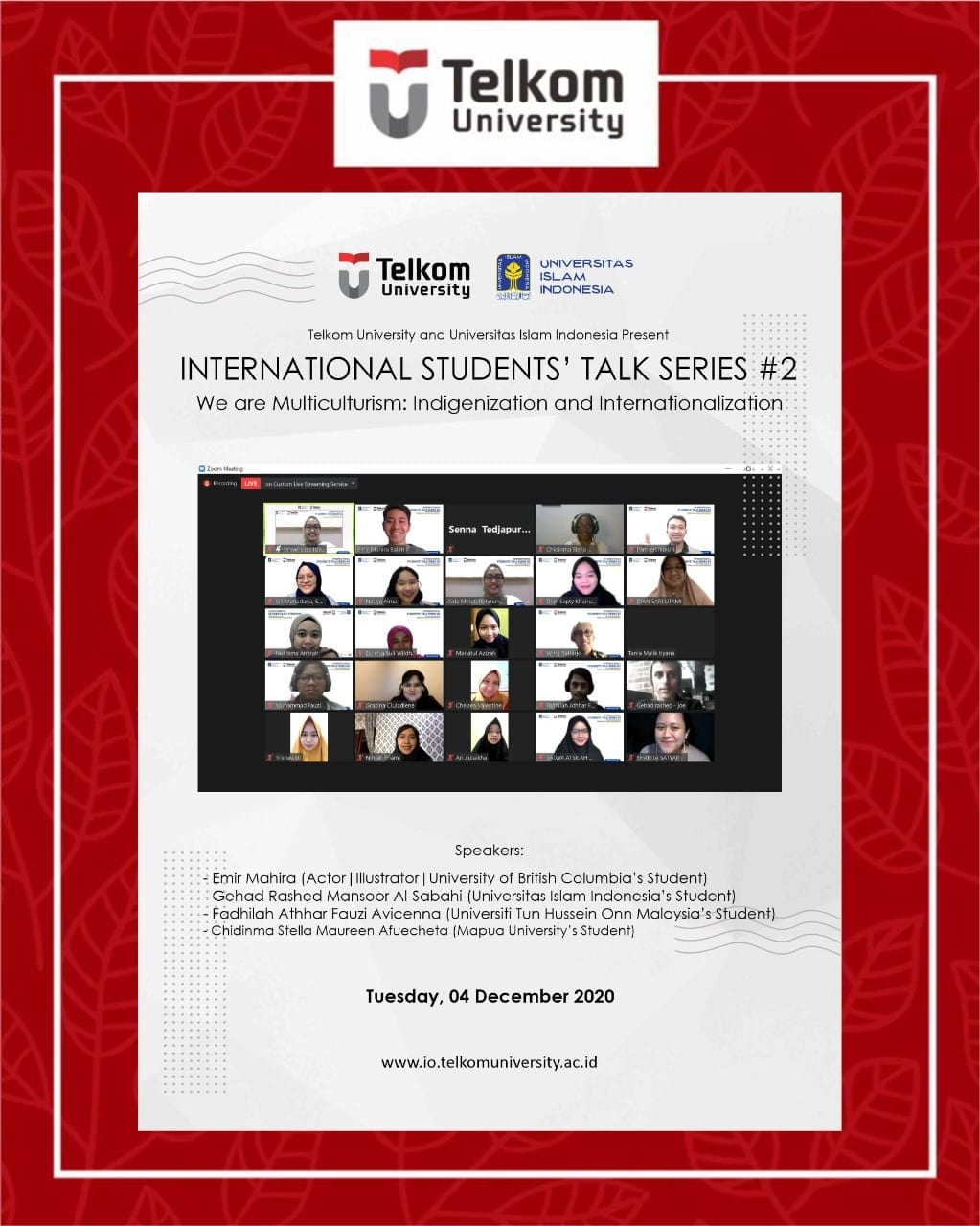
We are Multiculturism: Indigenization and Internationalization
We are Multiculturism: Indigenization and Internationalization. After successfully holding the 1st series 1 on Monday (1/12/2020), Telkom University and Universitas Islam Indonesia continued to hold the 2nd series of the International Students’ Talk very interestingly this Friday afternoon (4/12/2020). In this episode, 4 (four) great speakers including 1 guest star: Emir Mahira and 3 international students: Gehad Rashed Mansoor Al-Sabahi, Fadhilah Athhar Fauzi Avicenna, and Chidinma Stella Maureen Afuecheta shared their experiences regarding the multiculturalism: indigenization and internationalization to hundreds of participants in Zoom meeting guided by Siti Mahdaria.
This 2nd series was divided into three sessions which were Guest Star Sharing Session, Round-table Session, and discussion session. Emir Mahira, a student at University of British Columbia, Vancouver, Canada is also an actor, illustrator, and influencer from Indonesia. He shared that for past 10 years he spent his time being an international students in various countries including Singapore, Malaysia, and Canada. He started his educational journey abroad initially because his father’s job made his family move abroad. Ten years living outside Indonesia does not mean that Emir does not experience difficulties. Of course he experienced culture shock every time he was in a new country. When he first lived in Singapore he was lucky to live with his family, who became the support system when he experienced culture shock. However, after being in Canada, he had to build a new support system by making friends with those who were experiencing culture shock as well so that they could share and support each other.
Apart from Emir, 3 other international students also experienced culture shock. Chidinma Stella Maureen Afuecheta, an international student at Mapua University, Philippines from Nigeria. She shared that she definitely experienced culture shock as she has totally different skin color and hair texture as well. At the beginning everyone around her always stared her with strange look. Luckily she realized that she had a lot of differences so she had prepared herself with always open minded so that all those stares of those people didn’t bring her down too much. She considered it as multiculturalism where she had to be open to the diversity.
A quite unique and funny experience was conveyed by Gehad Rashed Mansoor Al-Sabahi, an international student at the Indonesian Islamic University from Yemen. When he first came to Indonesia he was quite surprised to see people saying “sayang” (darling) so easily as when shopping, the seller calmly said “sayang”. Later he learned that it was a common call to make a good engagement without involving feelings of love.
What can be learned from this sharing session is that we cannot close ourselves off from cultural differences because cultural differences exist for mutual respect, creating harmony in diversity. If you feel insecure by mentioning your nationality as a minority, you can also call yourself a “Global Citizen” where we can be more open minded and understand multiculturalism.(IO)***
